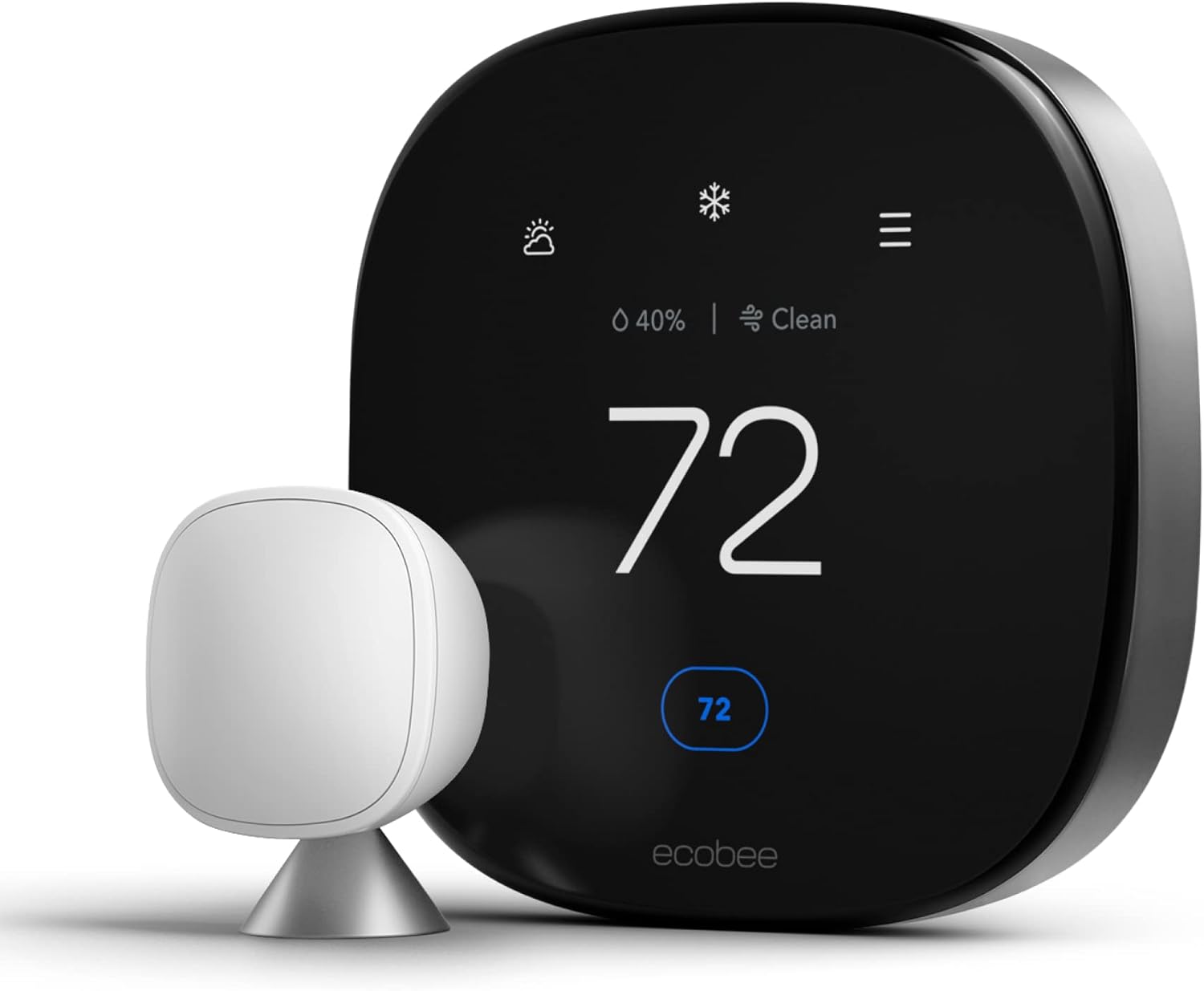Is the Bosch Heat Pump Good? An HVAC Contractor’s In-Depth Review
You know Bosch for power tools and whisper-quiet dishwashers. But does their legendary German engineering translate to home heating and cooling? We’ll answer that and more.
Let’s clear up the first question right away: **Yes, Bosch absolutely makes heat pumps.** For many U.S. homeowners, this comes as a surprise. The iconic red logo is more often associated with what’s in your garage or kitchen, not the big metal box humming away outside your house. But over the last decade, Bosch has quietly become a dominant force in the high-efficiency HVAC market, especially as homeowners look to electrify their homes and take advantage of new tax credits.
That brings us to the more important question: **Are Bosch heat pumps actually any good?** As the world of home energy undergoes a massive shift in 2025, moving away from fossil fuels and towards efficient electric solutions, this question has never been more relevant. Homeowners want to know if this is a brand they can trust for one of the most significant and expensive appliances in their home. The short answer is a resounding yes, but the reasons why are what truly set them apart from the competition.
Why Trust This Review?
I’m a NATE-certified HVAC contractor with over 20 years of experience installing, servicing, and repairing heating and cooling systems across the United States. I’ve worked with every major brand on the market, from Trane and Carrier to Lennox and Goodman. I’ve personally installed dozens of Bosch IDS (Inverter Ducted Split) systems and have seen firsthand how they perform in the scorching summers of the South and the bitter winters of the Midwest. This review is based on my hands-on experience, direct customer feedback, and a deep technical understanding of what makes an HVAC system reliable, efficient, and comfortable.
The Verdict First: Is a Bosch Heat Pump a Good Choice?
Yes, Bosch heat pumps are an excellent choice and a top-tier product. They are particularly well-suited for homeowners who prioritize **quiet operation, exceptional energy efficiency, and stable indoor comfort.** Their defining feature is their variable-speed inverter-driven compressor, which is a significant technological leap over the single-stage systems that still dominate much of the market. While their upfront cost is higher than budget-friendly brands, they deliver a premium experience that, for many, justifies the investment.
Why We Recommend Bosch
- Whisper-quiet operation
- Best-in-class inverter technology
- Exceptional energy efficiency (high SEER2/HSPF2 ratings)
- Superior dehumidification in summer
- Consistent, stable indoor temperatures
- Robust build quality and 10-year warranty
Potential Considerations
- Higher initial purchase price
- Requires a highly skilled installer for best performance
- Parts availability can be slower than some U.S. brands
- May not offer the absolute highest efficiency ratings on the market
The Bosch Difference: What is Inverter Technology?
You can’t talk about Bosch without talking about their inverter-driven heat pumps. This is their secret sauce. A traditional, single-stage heat pump operates on an “all or nothing” principle. When it turns on, it’s running at 100% capacity, regardless of whether you need that much power. When the thermostat is satisfied, it shuts off completely.
Think of it like driving a car in city traffic. A traditional system is like flooring the gas pedal until you reach the speed limit, then slamming on the brakes. It’s jerky, inefficient, and puts a lot of stress on the engine.
How a Bosch Inverter Works
A Bosch inverter heat pump is like using cruise control. The variable-speed compressor constantly adjusts its speed—sometimes running as low as 25% or 30% of its total capacity—to precisely match the heating or cooling needs of your home at any given moment. It rarely shuts off completely. Instead, it ramps up and down in tiny increments to maintain a perfectly consistent temperature.
This approach has three massive benefits:
- Unmatched Comfort: By running for longer periods at lower speeds, the system eliminates the temperature swings and drafts common with traditional systems. It also does a far better job of removing humidity from the air during the summer, making your home feel much more comfortable even at a higher temperature.
- Incredible Efficiency: Just like a car on the highway uses less fuel than one in stop-and-go traffic, a compressor that isn’t constantly starting and stopping uses significantly less electricity. This translates directly into lower utility bills.
- Whisper-Quiet Operation: The loudest part of a heat pump’s cycle is the startup. By avoiding this jarring on/off cycle and running at lower speeds, Bosch outdoor units are famously quiet. Many models operate at levels around 56 decibels (dBA), which is quieter than a normal conversation or a modern dishwasher.
A Look at the Bosch Heat Pump Lineup (IDS Family)
Bosch’s main residential lineup is the Inverter Ducted Split (IDS) family. These are “split systems,” meaning they have an outdoor condenser unit and an indoor air handler. They are designed to work with traditional ductwork.
Bosch IDS 1.0 (BOVA-60 Model)
This was the original model that put Bosch on the map in the U.S. It offers efficiency ratings up to 18 SEER. It’s a fantastic, reliable system that can modulate its capacity down to about 60% of its max output. It’s a huge step up from any single-stage unit.
Bosch IDS 2.0 (BOVA-20 Model)
This is the current flagship and the one I install most often. The IDS 2.0 is more advanced, with an even wider modulation range and efficiency ratings up to 20.5 SEER2. It can run at very low speeds for a very long time, making it exceptionally efficient and great at dehumidification. It also has enhanced cold-climate capabilities, providing effective heating even when outdoor temperatures drop significantly.
Bosch IDS Premium Connected
This is a newer, fully communicating system. This means the outdoor unit, indoor unit, and thermostat are all designed to talk to each other digitally. This allows for even finer control and can slightly eke out more efficiency. It’s the top-of-the-line option but requires using Bosch’s specific thermostat.
What’s the Catch? Potential Downsides to Consider
No product is perfect, and it’s important to have a balanced view. While I am a big fan of Bosch systems, here are the three things I always discuss with homeowners.
- The Upfront Cost: Quality comes at a price. A Bosch system will almost always cost more than a standard single-stage unit from a brand like Goodman or Payne. You are paying for advanced technology and superior build quality. The investment pays off in lower energy bills and better comfort, but the initial sticker shock can be real.
- The Importance of the Installer: This is the most critical point. An inverter system is more complex than a basic heat pump. If it’s not installed and commissioned *perfectly* by a trained technician, you won’t get the performance or efficiency you paid for. You need to hire a contractor who has proven experience with Bosch or other inverter-driven systems. Don’t just go with the cheapest quote.
- Parts & Support: While Bosch is a massive global company, its HVAC footprint in the U.S. is still smaller than domestic giants like Trane or Carrier. This can sometimes mean that if a specific part fails, it might take an extra day or two to get it from a supply house compared to a more common brand. This is becoming less of an issue as the brand grows, but it’s a consideration.
The Perfect Pairing: Choosing the Right Thermostat for Your Bosch Heat Pump
Installing a high-tech inverter heat pump and connecting it to a cheap, basic thermostat is like buying a Porsche and putting budget tires on it. You’re bottlenecking the system’s performance. To get the most out of the variable-speed compressor, you need a smart thermostat that can manage multi-stage equipment properly.
While some fully communicating systems require a proprietary thermostat, most Bosch IDS 1.0 and 2.0 systems are flexible and work wonderfully with top third-party smart thermostats. Using a smart thermostat unlocks remote control, energy usage reports, and intelligent scheduling that complements the hardware’s efficiency. For a complete breakdown of options, you should check out our comprehensive guide to the **best thermostat for a Bosch heat pump**.
Here are a couple of my top recommendations that you can easily find on Amazon:

Best Overall: Emerson Sensi Wi-Fi Smart Thermostat
The contractor’s choice for reliability and ease of use. The Sensi is a workhorse. It’s not the flashiest, but it’s incredibly reliable, works with virtually any system configuration (including multi-stage heat pumps), and has a straightforward app. It gives you all the smart control you need without unnecessary complexity. It’s also a great choice for retrofits as it often doesn’t require a C-wire.
Check Price on Amazon
Best for Tech Lovers: Google Nest Learning Thermostat
A sleek design with powerful learning features. The Nest is famous for its elegant look and its ability to learn your schedule automatically. It works very well with Bosch systems and its advanced algorithms can help you save even more energy. Its Farsight feature and detailed energy reports in the Google Home app are best-in-class, giving you deep insight into your system’s performance.
Check Price on AmazonFrequently Asked Questions (FAQs)
The installed cost of a Bosch heat pump system typically ranges from $12,000 to $20,000+ in the U.S. The final price depends heavily on the size of the unit, the model (IDS 1.0 vs 2.0), your location, labor rates, and the complexity of the installation (e.g., whether your ductwork needs modification).
Yes, particularly the newer IDS 2.0 and IDS Premium models. They have excellent low-ambient temperature performance, meaning they can continue to produce heat efficiently even when outdoor temperatures are well below freezing, often into the single digits Fahrenheit (around 5°F or -15°C) before needing to rely on auxiliary heat strips.
Bosch offers a comprehensive 10-Year Limited Parts Warranty on all components, including the compressor, as long as the unit is registered online within 60 days of installation. This is a competitive, industry-standard warranty.
Final Thoughts: A Top-Tier Choice for the Modern Home
So, is the Bosch heat pump good? Without a doubt, yes. It’s a premium product that delivers on its promises of quiet, efficient, and consistent home comfort. The German engineering is evident in the build quality and the sophisticated inverter technology that powers the system.
While it represents a significant investment, it’s an investment in superior technology that will pay dividends for years to come through lower energy bills and a more comfortable living environment. If you’re a homeowner looking to upgrade your HVAC system in 2025 and you value quality, quietness, and efficiency, a Bosch heat pump should be at the very top of your list for consideration.




















